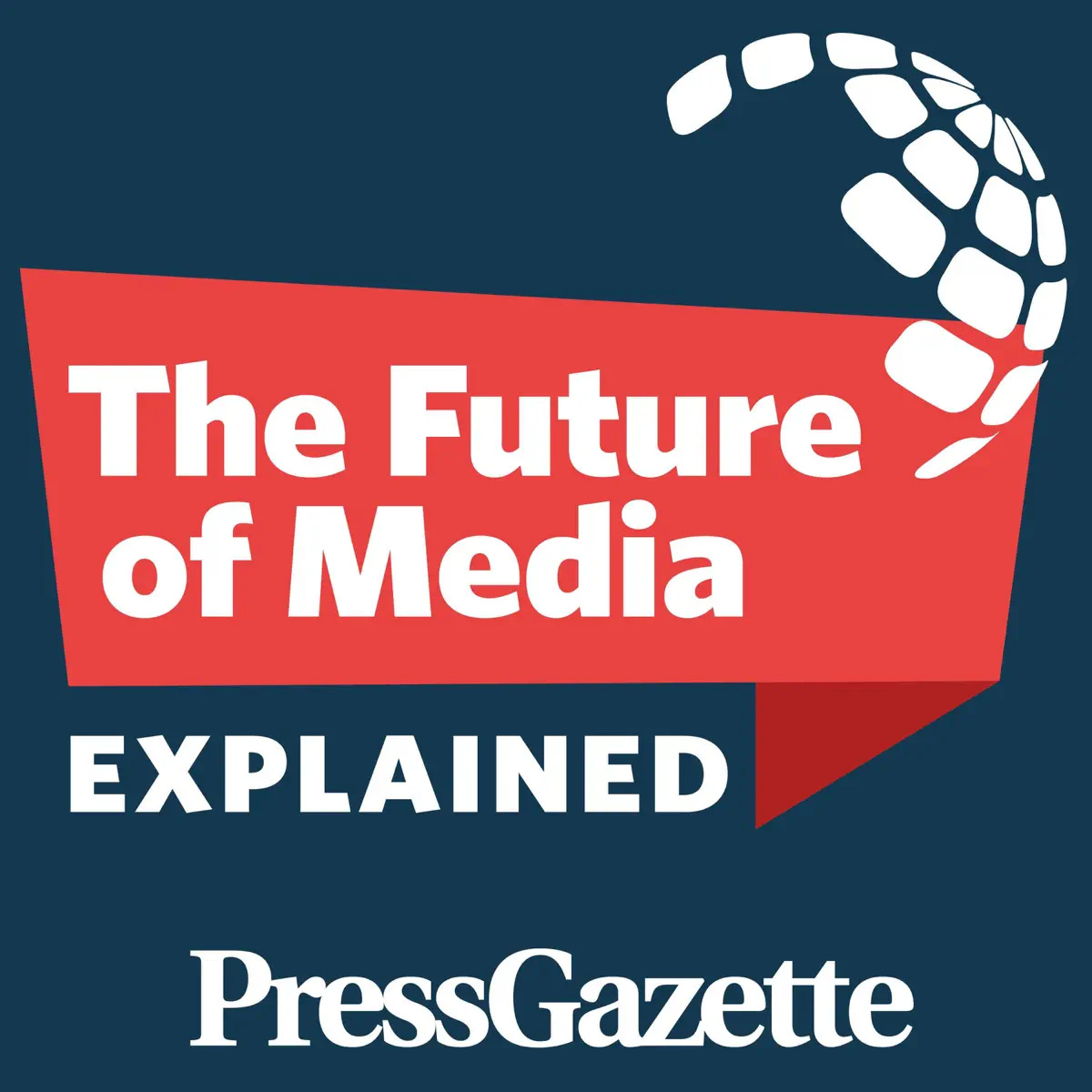Investigation: Fake and dubious experts widely quoted in national media
Plus, the gamified news app reaching Gen Z and Katharine Viner gives evidence in Noel Clarke's libel action against The Guardian
Good morning and welcome to your daily media briefing from Press Gazette on Monday 7 April, brought to you today in association with JobsInAdtech.com.
Over the last couple of weeks I have disappeared down a rabbit hole with freelance journalist Rob Waugh in pursuit of widely-quoted national media experts who are not what they seem to be.
We've discovered some quoted experts who simply do not exist and others whose credentials are patchy to say the least.
I've received legal threats and even a request to share my address by one prolific commentator (who also declined to share any credentials).
It's a story which has prompted me to ponder the philosophical question: how do I prove someone does not exist? And it's led me to conclude: if you are even asking yourself that question, you should probably quote someone else in your article.
Today we publish the results of an investigation which should trigger a major re-evaluation of the way credible news outlets - ranging from The Sun to the BBC - use services like Responsesource which match journalist questions with PR answers.
Because if journalism is to survive in an online world increasingly populated by AI-created content it has to, at the very least, be grounded in reality.
Today we also interview the founder of a US news start-up which claims to have found a way to not only reach 18-35 year-olds with news but persuade them to pay for it.
Members of this generation do not read newspapers, magazines or even visit publisher websites and apps. But RocaNews has found it can reach them on Instagram and then convert them to become users of a gamified news app which works a bit like Duolingo and has a paid version.
We carry a report from the High Court with a rare example of a national newspaper editor taking the stand to defend their reporting.
The Guardian's Kath Viner has been accused of being part of a conspiracy to defame actor Noel Clarke. She says it was her call to publish the investigation and has explained why she decided to do so.
And finally we have your news diary for the week ahead, which promises to be dominated by the news of new US trade tariffs against the rest of the world coming into force on Wednesday.
From our sponsor
Hiring in the digital media industry is hard.
LinkedIn job ads attract large amounts of waifs and strays who aren’t qualified, leaving your talent acquisition team spending too many hours combing through applies, looking for the needles in the application haystack.
Recruiters are a luxury. Charging up to 20% of first year salaries, it’s a massive expense, and considered an anachronism in today’s digital age.
Since 2023 JobsInAdtech.com has been offering the winning option by helping media companies hire cheaply, simply, and effectively for all adtech related roles. So, whether its ad operations, sales, engineering, or business development, JobsInAdtech.com has you covered.
Use promo code GAZETTE to claim your 20% off any package today.
On Press Gazette
Articles containing comment from Rebecca Leigh and Charlotte Cremers, both of whom do not appear to exist
Virtual reality: The widely-quoted media experts who are not what they seem
One widely-quoted expert contacted by Press Gazette does not exist while another declined to share credentials or other proof.
Gen Z outlet says it proves young people will pay for news done the right way
“It made us rethink the question of maybe young people will pay for news. It’s just that they don’t have a brand they trust or want to pay for. That makes us kick ourselves for not doing this four years ago. But we’re going from here.”
Guardian editor Kath Viner: ‘Clear public interest’ in exposing Noel Clarke allegations
"I considered there was a very clear public interest in exposing allegations of misconduct in the context that the individual in question had recently celebrated and further empowered through the special award that had been made by Bafta."
News diary 7 – 13 April: US tariffs in effect, Istanbul mayor due in court
A look ahead at the key events leading the news agenda this week, from the team at Foresight News.
News in brief
BBC deputy political editor Vicki Young has been appointed as the next presenter of Politics Live starting in June. (Press Gazette)
Daily Mail and New Scientist publisher DMGT has signed a deal to license its journalism for development for film, television and streaming. (Press Gazette)
Twelve US copyright cases against OpenAI and Microsoft, including those brought by The New York Times, Jonathan Franzen, Sarah Silverman and Ta-Nehisi Coates, have been combined into one, to be heard in New York. (The Guardian)
A 42-year-old man arrested in the Sheffield area in connection with the murder of journalist Martin O’Hagan in County Armagh in 2001 has been charged with fraud by false representation. No-one has ever been convicted in relation to O'Hagan's death. (Belfast Telegraph)
Fox News rival Newsmax had a market cap of $5.5bn after its IPO on the New York Stock Exchange. It celebrated the IPO by ringing the opening bell on Thursday on a day the NYSE plunged 4% following President Trump's tariffs announcement.
CNBC is rolling out a subscription TV streaming service on Apple TV and Roku and working on an audio version of the livestream as it expands its international output. (Financial Times)
Piers Morgan has told Semafor he intends to built out additional content verticals around his "Uncensored" YouTube channel covering crime, history and sport. He claimed there are "some big players who are very, very keen to get involved". (The Guardian)
Radhika Jones, who has edited Vanity Fair since 2017, is stepping down. She reportedly told staff in an email that she didn’t want to experience the “horror of staying too long at the party”. (The New York Times)
A journalist for community news site Cwmbran Life has said an April Fools' Day story from five years ago is showing up as fact in Google AI Overviews. He said he will not publish a fake story again. (BBC News)
The News Media Association, News UK and Financial Times are among the signatories to a letter to Keir Starmer saying there should be no change to big tech regulation as part of a trade deal with the US. (NMA)
The FT's head of newsletters and executive editor Sarah Ebner has been made director of editorial growth and engagement, overseeing the paper's audience team and "bringing newsletters into the fold". (Linkedin)
Global reporter Charlotte Lynch to present 10pm to 1am slot on LBC News with breaking news from the US and elsewhere. The new LBC News breakfast presenter is Vanessa Baffoe. (LBC)
Guitar.com and MusicTech are returning to print: they will be included with the bi-monthly NME on an alternating basis meaning three issues per year each. The magazines both closed around four years ago.
Labour MP Rebecca Long-Bailey led on an early day motion in Parliament about news and AI over concerns "that technological developments are not allowed to undermine the economic sustainability of employment in professional news journalism". (UK Parliament)
Also this week on Press Gazette
The Economist 1843’s remit for life after print: ‘Do stuff that will win prizes’
Guardian journalist on Noel Clarke investigation: ‘I felt that it was a story to be made public’
Print is still top-three revenue driver for US publishers says AAM chief
Independent says readers ‘often prefer’ stories on new AI ‘Bulletin’ to human-written versions
Facebook profits from scam investment site using name of CNN anchor Richard Quest
Rachel Sylvester named Observer political editor as around half staff leave title
Latest podcast: Jim Mullen's legacy at Reach | Value of news to Google | Sun losses, Times profits
Press Gazette's editorial team share their insights into big stories from the world of news. Charlotte Tobitt talks us through the latest News UK accounts, which show losses at The Sun shrank in the year to June 2024 while The Times reported a £60m profit.
We react to news that Jim Mullen, the divisive CEO at Reach, is stepping down. And Bron Maher looks at the arguments and counterarguments being made by publishers and Google over what news is really worth on its platforms.







